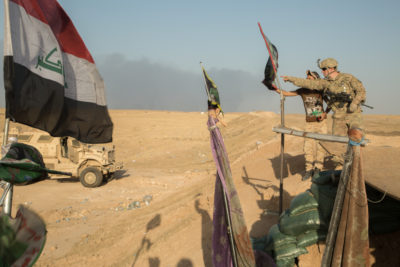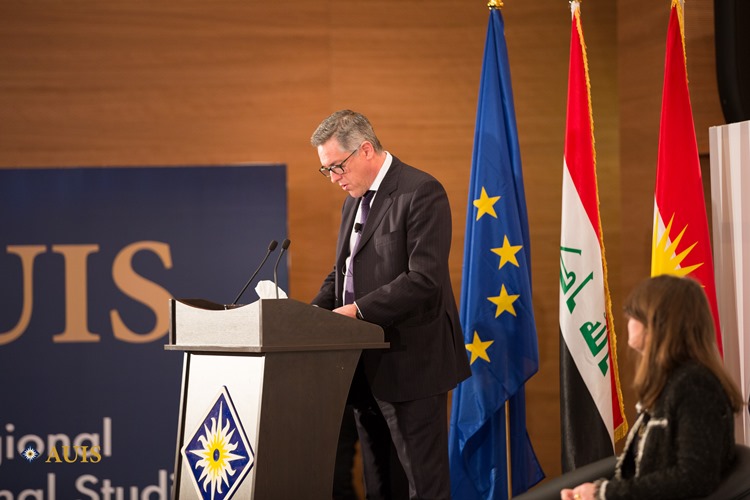The Iraq Governance and Security and Justice Programmes are key in delivering the UK’s mission to support the Iraqi Government and people as they build a stable, prosperous and democratic nation.
Working with the Government of Iraq, the UN Mine Action Service (UNMAS) and the UNDP, CSSF funding has helped to rebuild essential infrastructure in areas liberated from Daesh, and cleared it of explosive hazards, enabling over 3.6m people to return home and access basic services, including healthcare, education, water and electricity.
CSSF support to the UNDP-led Funding Facility for Stabilisation, a multi-donor pooled fund, has helped deliver over 1,500 stabilisation projects restoring services and essential infrastructure in liberated areas. UNDP has staff deployed across Iraq, including embedded stabilisation advisors in 10 municipalities to support project planning.
The programme has provided cash for work for both men and women, and stimulated local business through reconstruction contracts. Over 15,000 residents earned a wage whilst restoring their homes and city.
Inclusion is critical to the stabilisation effort—and women have been recruited as engineers, social workers and in local councils. In total over 2,000 jobs and more than 1,000 small business grants have been created for women, and over 1,000 vulnerable women and female headed households have benefitted from cash for work programmes.
As well as the ‘pooled’ Funding Facility for Stabilisation projects, CSSF funding has specifically paid for the rehabilitation of a water plant serving over 300,000 people in Mosul and repaired over 2,000 homes in the city.
In Mosul the UNMAS demining programme has facilitated the removal of more than 585,000 explosive hazards, helping to enable the return of nearly 1 million people. Clearance locations include Al Khansa Hospital in Mosul and four schools in Al Qayarra, helping 1,286 children return to school.
To download the full report from the UK’s Foreign and Commonwealth Office, please click here.



